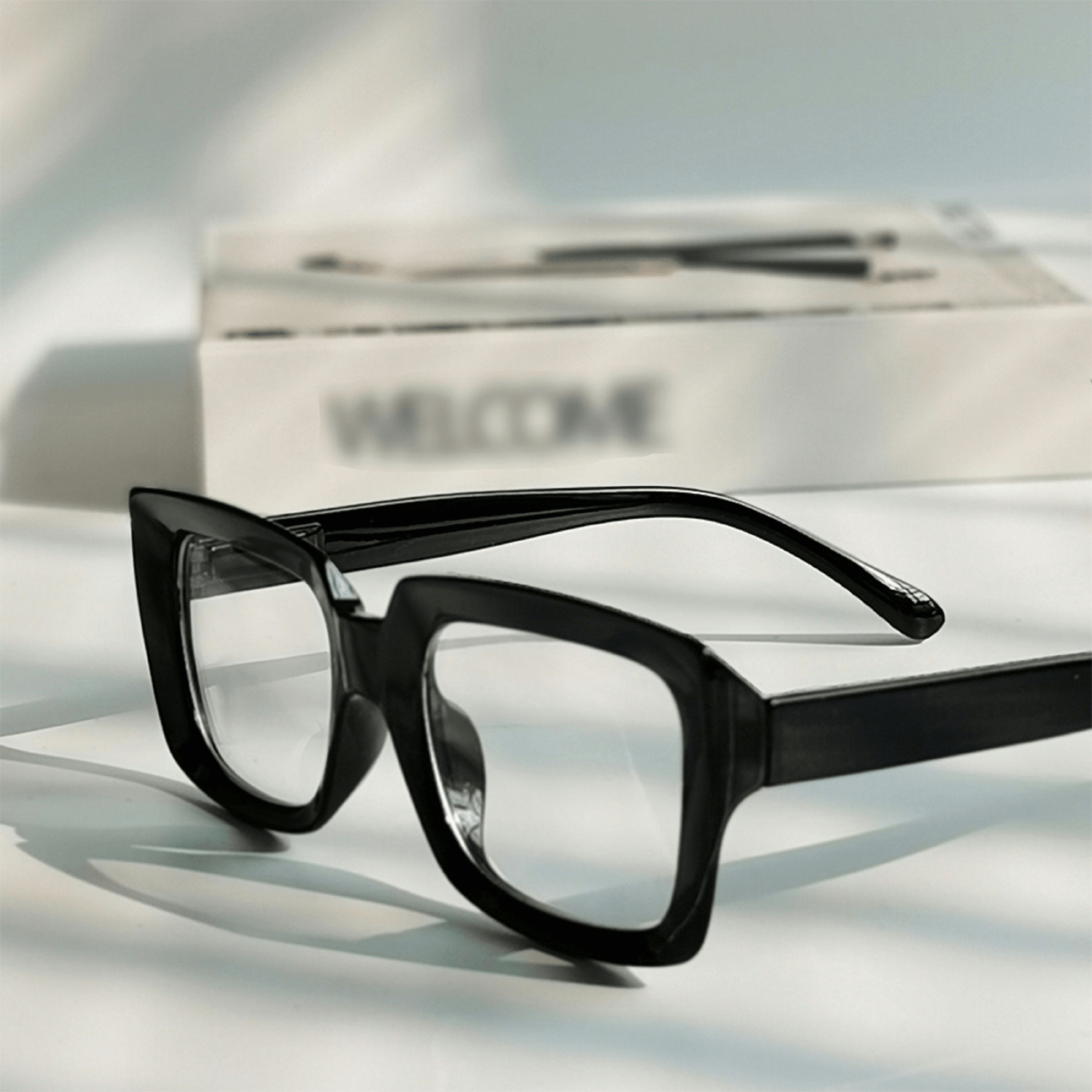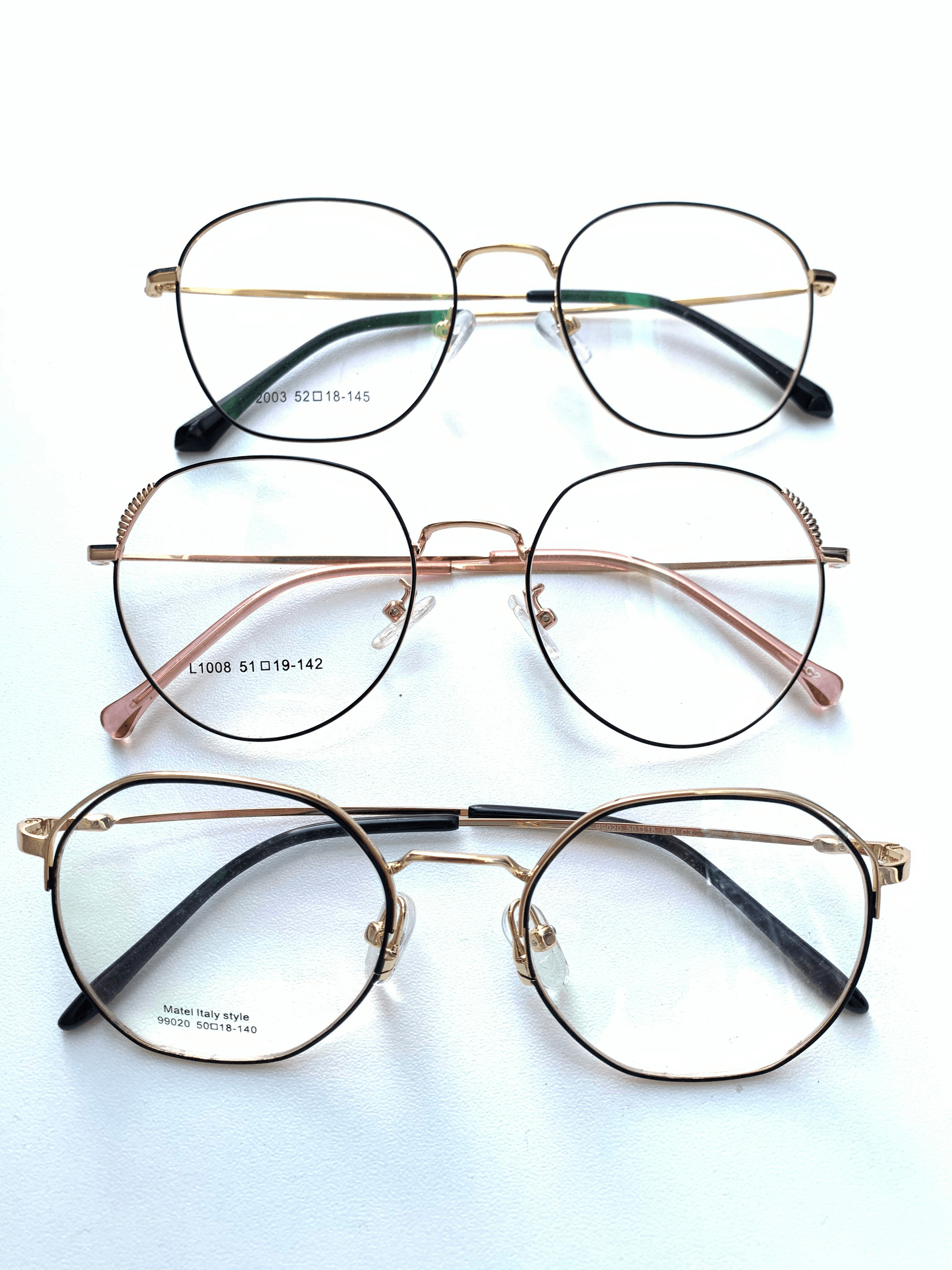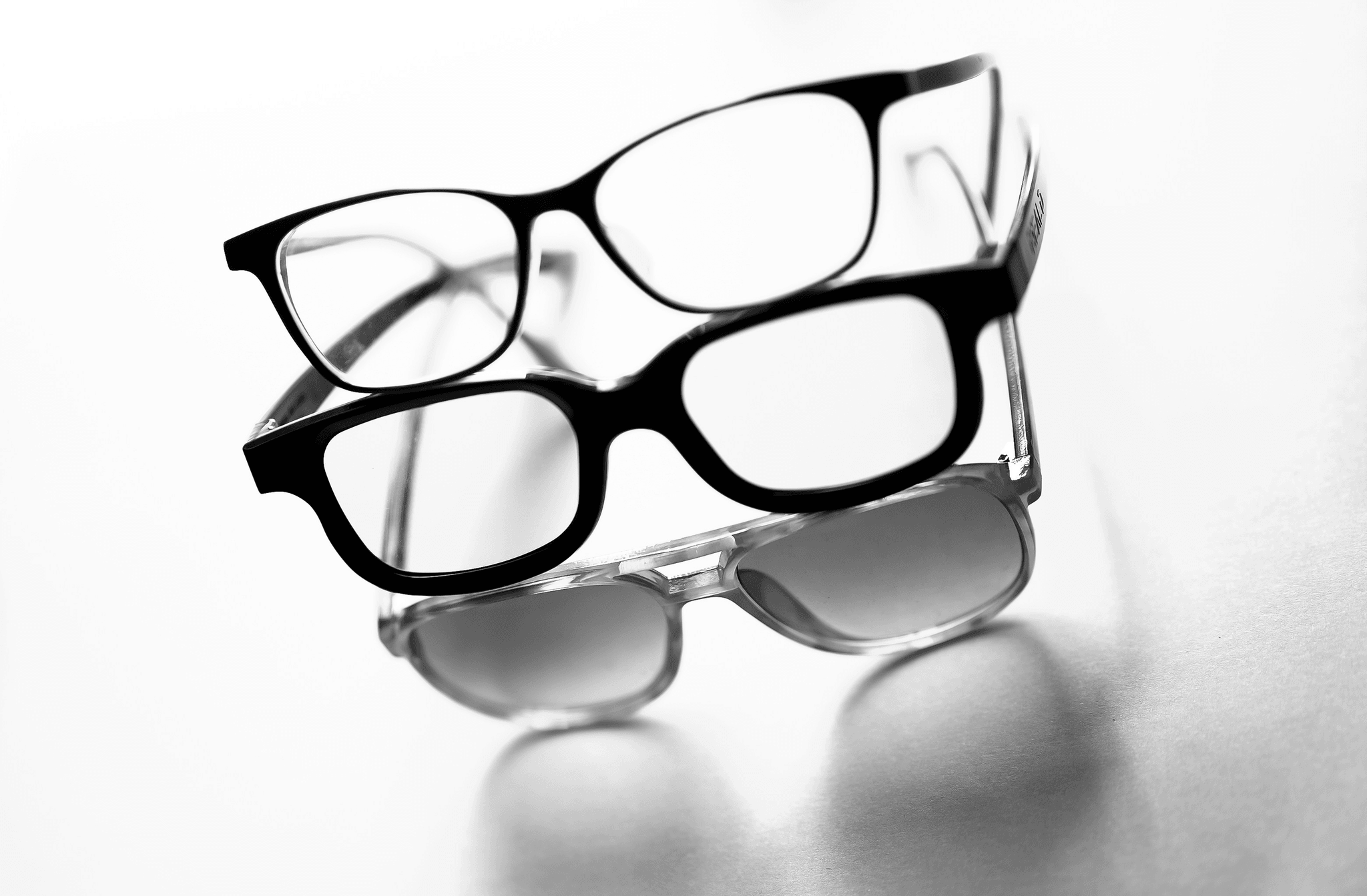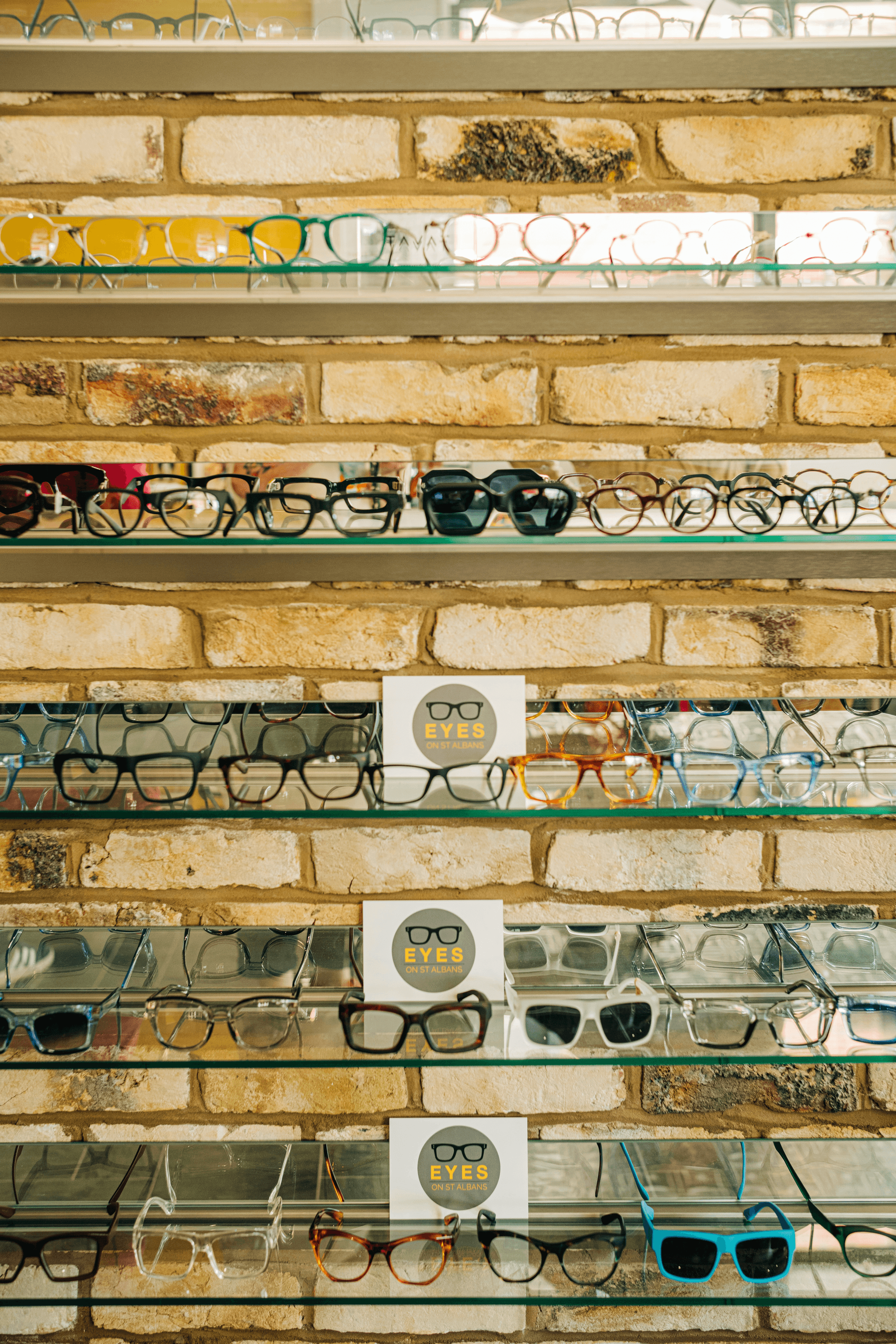Introduction

Understanding Single Vision Glasses
So, what is single vision glasses? In essence, these glasses feature lenses that have a uniform prescription throughout, catering to either nearsightedness or farsightedness. They provide a straightforward solution for those who need help with either distance or close-up tasks but not both simultaneously.
Importance of Vision Clarity
Vision clarity isn't just about being able to read street signs or enjoy your favorite novel; it's about experiencing life fully and without strain. For those asking themselves, Can you wear single vision glasses all the time? the answer is often yes—these lenses are typically comfortable for extended use. When your eyesight is clear and focused, everyday activities become more enjoyable and less tiring.
Types of Lenses Explained
There are various types of single vision lenses available on the market today, each tailored to meet different needs and preferences. From standard 1.5 single vision lenses meaning basic correction to specialized options that offer enhanced features like anti-reflective coatings, there's something for everyone. Understanding these types can help you choose the right lens for your lifestyle and visual requirements.
What are Single Vision Glasses?

Single vision glasses are a popular eyewear solution designed to correct vision at a single distance, whether for near, intermediate, or far sight. Unlike multifocal lenses, which cater to multiple vision needs, single vision lenses provide clarity for one specific range. This simplicity makes them an ideal choice for many individuals seeking straightforward visual correction.
Definition and Functionality
So, what is single vision glasses? Essentially, they consist of a single optical prescription across the entire lens surface. This means that the wearer can enjoy clear and focused vision without the complications of switching between different lens types or struggling with blurred areas that can occur with bifocals or progressives.
The functionality of single vision glasses is straightforward: they help correct nearsightedness (myopia), farsightedness (hyperopia), or astigmatism by ensuring that light entering the eye is properly focused on the retina. This clarity in vision allows individuals to engage in daily activities without straining their eyes.
Who Needs Single Vision Lenses?
Wondering who needs single vision lenses? These glasses are perfect for anyone who requires correction for only one distance—be it reading a book up close or seeing clearly while driving down the road. Typically, children and adults with uncomplicated refractive errors often find relief from their visual challenges through this type of eyewear.
Moreover, those who spend long hours at computers may also benefit significantly from single vision lenses tailored specifically for intermediate distances. If you’ve ever asked yourself what does single vision mean with glasses in terms of your own needs, consider how often you require sharp focus at just one distance throughout your day.
Common Uses in Daily Life
Single vision glasses are versatile companions in everyday life! From reading labels at the grocery store to enjoying outdoor activities like hiking or biking, these lenses serve a variety of purposes without fuss. Many people wear them while working on computers or engaging in hobbies that demand precise visual acuity.
In addition to aiding daily tasks, these glasses can enhance overall quality of life by reducing eye strain and fatigue caused by poor eyesight. If you've been pondering whether you can wear single vision glasses all the time—yes! They’re designed for continuous use and can seamlessly integrate into your lifestyle.
What Does Single Vision Mean with Glasses?

When exploring the realm of eyewear, understanding what single vision means with glasses is crucial for anyone seeking clear vision. Single vision lenses are designed to correct one field of vision, whether for distance or near sightedness. This makes them a popular choice for those who need straightforward solutions without the complexities of multifocal lenses.
Breaking Down the Terminology
At its core, single vision glasses refer to lenses that provide a uniform prescription across the entire lens surface. This means that if you’re asking, What is single vision glasses? you’re essentially looking at a type of eyewear tailored for specific visual needs—either for seeing far away or up close. Unlike bifocals or progressive lenses which cater to multiple prescriptions, single vision lenses simplify your visual experience by focusing on one clear view.
Benefits of Single Vision Lenses
The benefits of single vision lenses are numerous and can significantly enhance your daily life. For starters, they offer clarity and comfort in whatever activity you're engaged in—be it reading a book or driving down the highway. Additionally, these lenses typically come in various types, including 1.5 single vision lenses meaning they have a specific refractive index that balances quality with affordability; making them an excellent choice for many individuals.
Situations Where They Shine
Single vision glasses truly shine in everyday scenarios where clarity is paramount. If you're someone who spends long hours working at a computer or enjoys hobbies like knitting or painting, having dedicated single vision lenses can make all the difference in reducing eye strain and enhancing focus. Furthermore, if you’ve ever wondered about Can you wear single vision glasses all the time?—the answer is yes! They are designed for continuous use and can be your go-to eyewear solution without any fuss.
Can You Wear Single Vision Glasses All the Time?

Single vision glasses are designed for specific vision needs, making them a popular choice for many individuals. But can you wear single vision glasses all the time? The answer is generally yes, as they provide clarity and comfort for daily tasks, but there are some considerations to keep in mind.
Everyday Use of Single Vision Glasses
When exploring what single vision glasses offer, it’s essential to understand their everyday applications. These lenses are particularly beneficial for those who need correction for either nearsightedness or farsightedness, making them suitable for activities like reading, driving, or using a computer. Many people who ask who needs single vision lenses? find that these glasses enhance their quality of life by providing clear vision throughout the day.
Factors to Consider for Comfort
While wearing single vision glasses full-time is feasible, comfort is key to enjoying your experience with them. Factors such as lens material, frame fit, and prescription accuracy play significant roles in how comfortable you feel while wearing these lenses. If you're considering what does single vision mean with glasses in terms of comfort, remember that proper adjustments and choosing the right types of single vision lenses can make all the difference.
The Impact on Your Vision
Wearing single vision glasses consistently can positively impact your overall visual health by reducing eye strain and improving focus on tasks at hand. However, it’s important to monitor how your eyes respond over time; if you notice discomfort or changes in your sight, consulting an eye care professional is advisable. Understanding the difference between single vision and progressive glasses can also help you determine whether this option meets your evolving visual needs.
What is the Difference Between Single Vision and Progressive Glasses?

Comparing Vision Solutions
Single vision glasses provide a straightforward solution for those who need correction for just one distance. They offer clarity and focus without any distractions from additional lens zones that you would find in progressive lenses. On the other hand, progressive glasses combine multiple prescriptions into one lens without visible lines, allowing for smooth transitions between different focal lengths—ideal for those who have presbyopia alongside other refractive errors.
When to Choose Each Type
Choosing between single vision lenses and progressives depends on your individual needs. If you only require correction for one type of distance—like when you're asking yourself What does single vision mean with glasses?—then single vision lenses are likely your best bet. However, if you're juggling tasks that require various focal lengths throughout the day (think reading a book while also glancing at your phone), then progressive lenses might be worth considering.
Understanding Your Vision Needs
Understanding who needs single vision lenses is vital in making an informed choice about eyewear options. If your primary concern is clarity at either close or far distances without the need for multifocal corrections, then single vision may be all you need! Conversely, if you've been diagnosed with conditions requiring different levels of visual acuity throughout your daily activities—especially as age sets in—you might want to explore progressive options further.
Types of Single Vision Lenses

When it comes to understanding what is single vision glasses, it’s essential to explore the various types of single vision lenses available in the market. These lenses are designed to correct a single field of vision, whether it's for distance, reading, or other specific tasks. Knowing the different varieties can help you make an informed choice that best suits your lifestyle and visual needs.
Varieties Available in the Market
There are several types of single vision lenses tailored for different activities and preferences. You can find standard plastic lenses, which are lightweight and affordable, as well as high-index lenses that offer thinner profiles for stronger prescriptions—perfect if you’re wondering who needs single vision lenses but prefers a stylish look. Additionally, there are polycarbonate options known for their durability and impact resistance, making them ideal for active lifestyles or children’s eyewear.
For those who spend long hours in front of screens, blue light blocking single vision lenses can reduce eye strain and enhance comfort during digital use. Each type has its unique benefits; thus, understanding what does single vision mean with glasses becomes clearer as you explore these options. The choice ultimately depends on your daily activities and personal preferences.
1.5 Single Vision Lenses Meaning
The term “1.5 single vision lenses” refers to a specific lens index that indicates the thickness and weight of the lens material used in crafting eyewear. Lenses with a 1.5 index are made from standard plastic material; they strike a balance between affordability and performance while providing adequate optical clarity for most prescriptions—answering the question: can you wear single vision glasses all the time? While they may be thicker than higher-index alternatives, they remain a popular choice due to their cost-effectiveness.
These lenses are suitable for individuals with mild to moderate prescriptions but may not be ideal for those requiring stronger correction who would benefit more from high-index options like 1.6 or 1.67 materials—especially when comparing them against progressive glasses or bifocal solutions! In essence, understanding this lens type helps clarify which option aligns best with your visual requirements.
Choosing the Right Lens for You
Choosing the right lens involves evaluating your specific needs based on lifestyle factors such as occupation, hobbies, and comfort preferences—key considerations when deciding between types of single vision lenses! If you frequently engage in outdoor activities or sports, polycarbonate might be your go-to option due to its resilience against impacts while ensuring safety without compromising clarity.
On the other hand, if you're someone who spends hours working at a computer screen daily or enjoys reading extensively—considering how long can you wear these glasses comfortably—is crucial too! Daposi is here to guide you through this selection process by offering tailored solutions that fit your unique style while bringing your vision to life: Beyond Eyewear! 🌟
Single Vision Lenses vs Bifocal

When it comes to vision correction, understanding the differences between single vision lenses and bifocal lenses is crucial for making informed choices about your eyewear. Each type of lens serves distinct needs, which can significantly impact your daily life. So, what is single vision glasses, and how do they compare to bifocals? Let’s dive in!
Key Differences Explained
Single vision glasses are designed with one prescription that corrects either near or distance vision, making them ideal for individuals who need clarity in one specific range. On the other hand, bifocal lenses feature two distinct zones: one for distance and another for near vision, allowing wearers to switch focus without changing glasses. This fundamental difference defines who needs single vision lenses versus those who might benefit from bifocals.
The distinction doesn't stop at functionality; the design also varies significantly. Single vision lenses provide a seamless visual experience without any visible lines or segments, while bifocals have a noticeable line separating the two prescriptions. Understanding these key differences helps you determine which option suits your lifestyle best.
Pros and Cons of Each Type
Single vision lenses come with their own set of advantages and disadvantages that cater to specific needs. The primary benefit is their simplicity—wearers can enjoy clear vision without the hassle of transitioning between different focal points throughout the day. However, if you often find yourself needing both near and distant sight correction simultaneously, single vision may not be enough.
Bifocals offer versatility since they accommodate both near and far sight in one lens; however, they may require some adjustment time as users learn to navigate between the two sections effectively. Additionally, some people find bifocals less aesthetically pleasing due to their visible line design compared to sleek single vision options. Weighing these pros and cons will help guide your decision on what does single vision mean with glasses in relation to your personal needs.
Selecting the Best Option for Your Lifestyle
Choosing between single vision lenses vs bifocal ultimately depends on how you use your eyesight daily. If you're someone who primarily engages in activities requiring either near or distant focus—like reading or driving—single vision glasses might just be perfect for you! Conversely, if your routine involves frequent shifts between tasks such as reading a book while watching TV or working on a computer at varying distances, then considering bifocals could enhance your visual comfort.
Before making this decision, think about factors like how often you need quick transitions between distances and whether aesthetics play a role in your choice of eyewear style. For those still unsure about what is the difference between single vision and progressive glasses versus traditional options like bifocal lenses—it’s all about finding what fits best into your everyday life seamlessly!
And remember: Daposi is here to support you through this journey! With our commitment to innovation and customization in eyewear solutions—Bringing Your Vision to Life—we'll help ensure that whatever option you choose aligns perfectly with both function and style! 🌟
Conclusion

In conclusion, single vision glasses offer a straightforward solution to various vision needs. Understanding what is single vision glasses can help you appreciate their role in enhancing daily life, whether you’re reading a book or working on a computer. With clarity and simplicity at the forefront, these lenses cater to many individuals seeking effective visual correction.
The Benefits of Choosing Single Vision
Choosing single vision lenses comes with numerous advantages that make them an appealing option for many. For starters, they provide clear and focused vision for one specific distance—ideal for those who primarily need assistance with either near or far sight. Additionally, the ease of use associated with single vision glasses means that users can enjoy seamless transitions between daily activities without the complications often found in multifocal options.
Finding the Right Fit for Your Needs
When considering who needs single vision lenses, it’s essential to evaluate your lifestyle and visual requirements carefully. Whether you spend most of your day reading or driving, identifying the right type of lens is crucial for optimal comfort and performance. From exploring different types of single vision lenses to understanding 1.5 single vision lenses meaning, finding the perfect fit can transform your visual experience.
Daposi: Your Partner in Vision Solutions
At Daposi, we believe in bringing your vision to life—beyond eyewear and beyond expectations! Our commitment goes beyond just providing stylish frames; we aim to support you in developing unique designs that reflect your personality and values. With our focus on customization, innovation, and sustainability, we're ready to help you navigate through options like single vision lenses vs bifocal choices while ensuring you find what works best for your lifestyle.
